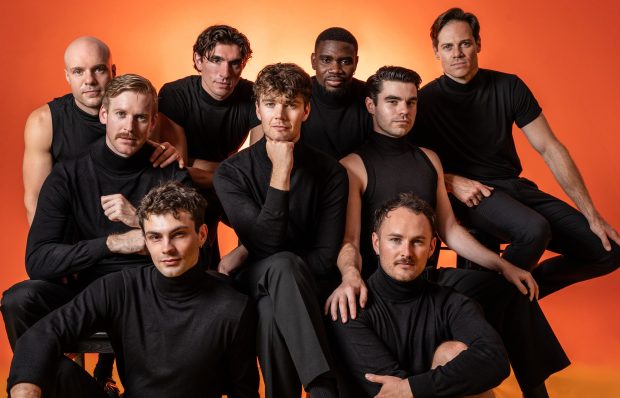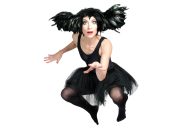The Boys Are Back In Town! Gay in the Sixties was a very different world. Get ready to meet The Boys In The Band.
Mart Crowley’s ensemble play The Boys in the Band first premiered in 1968, earning high praise amidst controversy. It was so controversial that after the 1969 Melbourne performance, two of the actors were charged by police for using what was deemed obscene language in the script! Or was it simply because of the gay premise?
But it’s inspiring to note that these historic performances played to a sold-out crowd, and the Sydney production not only ran for seven months but was awarded the NSW Play of the Year. Oh, how times have changed.
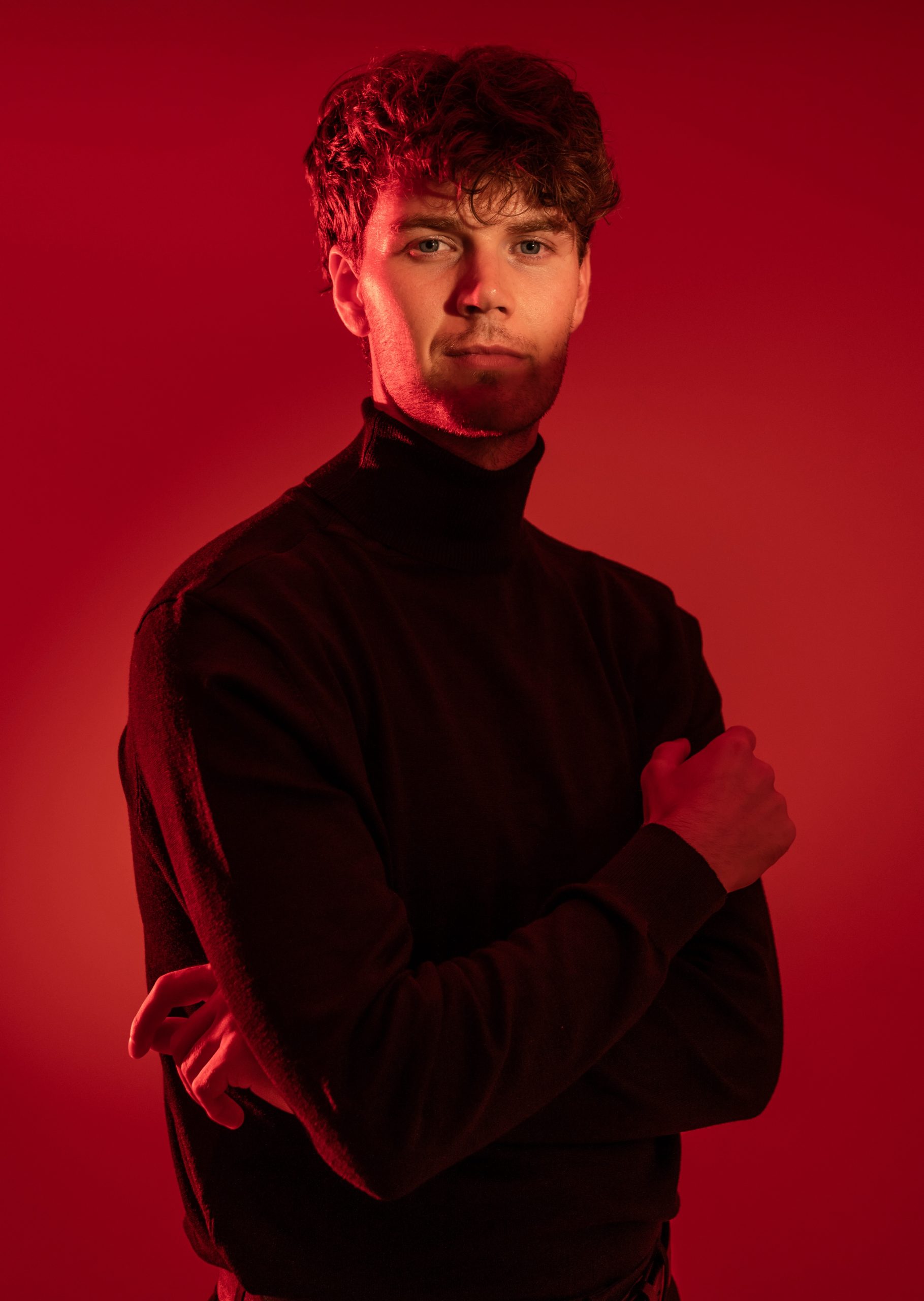
Maverick Newman plays Michael in The Boys In The Band Photo: James Terry
In recent years, The Boys in the Band was revived on Broadway, marking its 50th anniversary while introducing the classic play about a group of gay friends at a New York birthday celebration, to a new generation. A subsequent movie followed with the Broadway cast.
But finally, after a long wait, The Boys in the Band returns to Australia in a new production by the James Terry Collective.
In the role of Michael, Greenroom Award winner Maverick Newman (Finding Felix: A Memoir) plays the host of the party and catalyst to most of the play’s drama.
“The 1960s were a time of both quiet resilience and bold defiance within the queer community.”
“Michael is a challenging character,” says Newman.
“He behaves in some less-than-desirable ways and says some rather nasty, hurtful things. He’s a character that loathes himself and projects that outwards. Not only is it a challenge to step into that frame of mind, but it’s also a challenge to not shy away from it. You must always fight for your characters, which becomes challenging when they behave badly. But that’s also the joy.”
Played in the past by Kenneth Nelson, Ian Hallard and Jim Parsons, Michael is the pivotal character hosting a party with a mixture of characters and awkward scenarios. Somewhat neurotic and not particularly likable, Michael is a complex character to play.
“As an actor, you’re always drawing upon your own history, psyche and intuition. I bring all of that to the role,” says Newman.
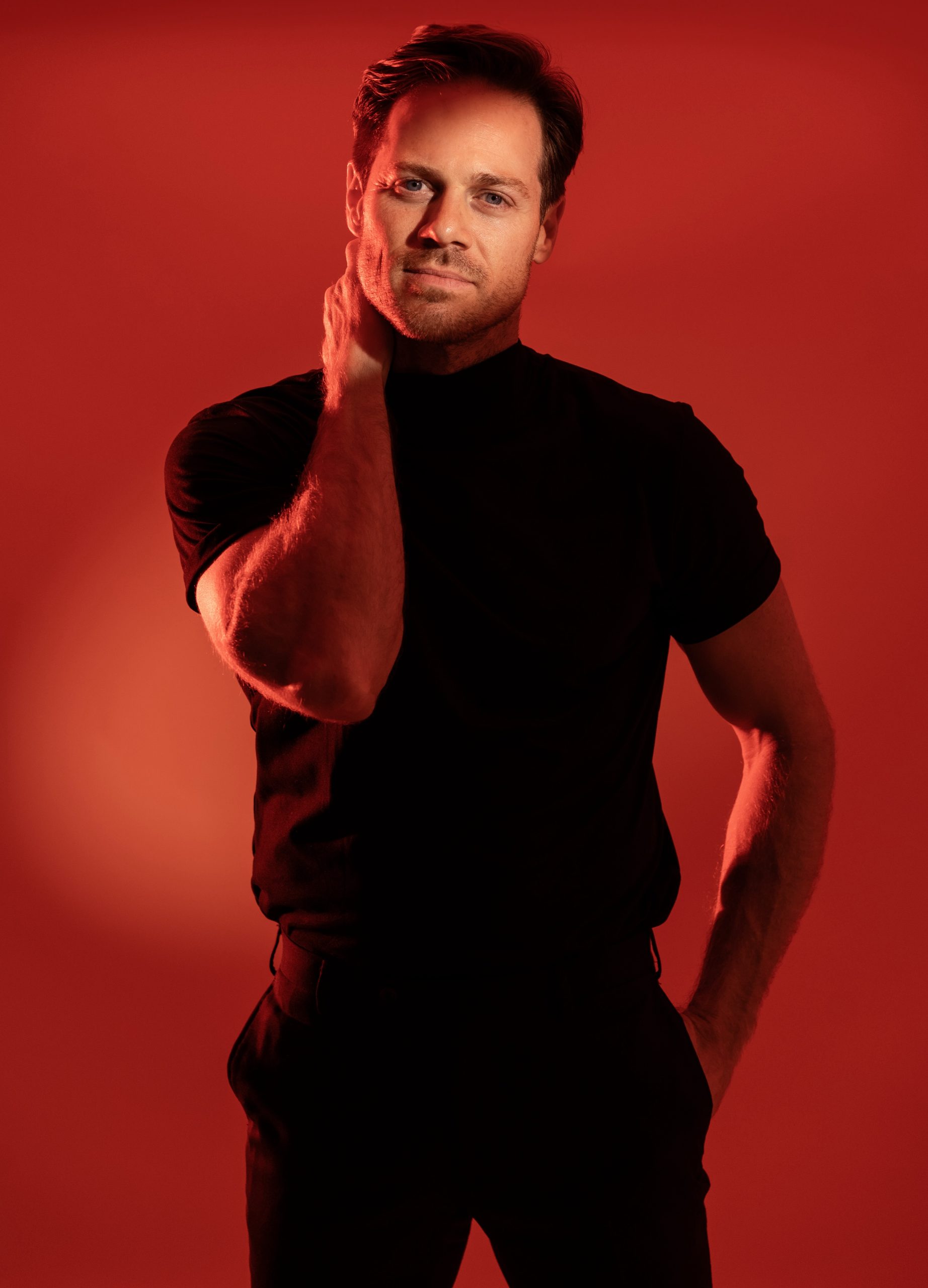
Stephen Mahy plays Hank in The Boys In The Band
“I try to draw upon and at least begin with the parts of myself that align with Michael. I’m also fortunate to know a handful of men, now in their 70s and 80s, who speak quite specifically to the character and that time period.”
Another character, Hank, a teacher who left his wife for a man, is played by Aussie musical theatre star Stephen Mahy. For Mahy, the role also has its challenges.
“I think the hardest thing to date has been the voices in my own head,” says Mahy.
“I’ve never done a play with so many brilliant one-liners.”
“As soon I saw the James Terry Collective was producing this play, I wanted to do it. But my fears stepped in. As a bisexual man who has predominantly been in a relationship with women, I kept telling myself this isn’t my story to tell. I questioned it over and over, then realised this ‘is’ my story. I’ve fallen in love with the person, not the gender, and that’s exactly what I believe Hank is doing. This becomes a challenge for society to understand and in turn, creates challenges to explain as a person.”
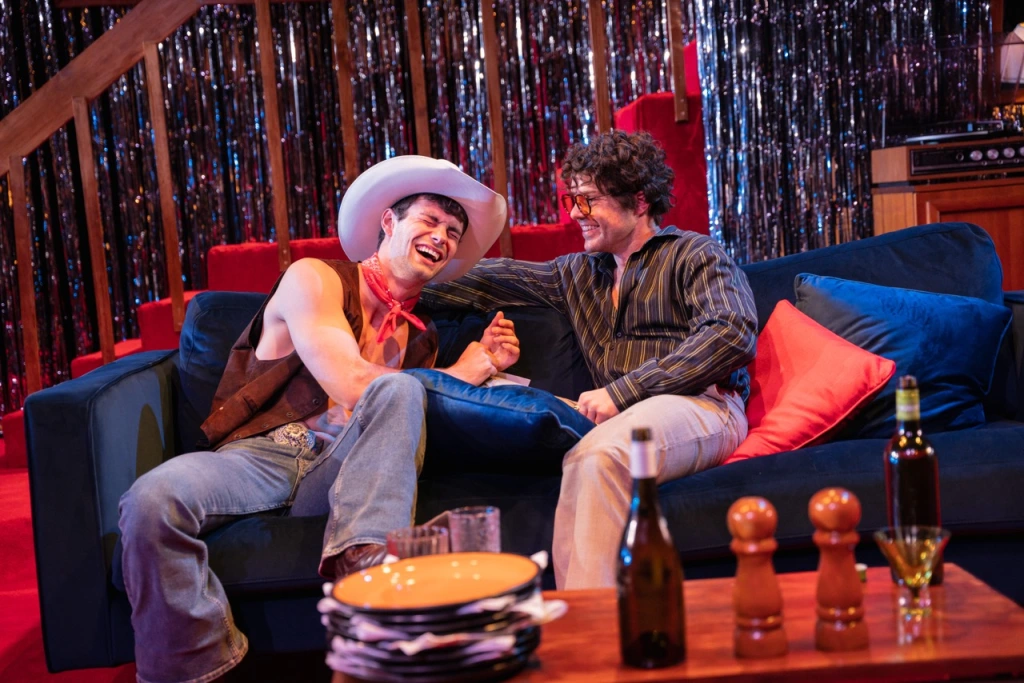
Harry McGinty and Mason Gasowski as Cowboy and Harold in The Boys In The Band
For its time, The Boys in the Band was not only controversial but ground-breaking for queer theatre. Mart Crowley had given a depiction of gay life in the Sixties. It was post-McCarthyism and pre-AIDS. Crowley’s story represented a new generation of homosexual men, out of the closet and onto the world stage.
“I’ve watched a few documentaries and interviews with Mart Crowley,” says Mahy.
“I feel his passion for this story. He explains the true meaning behind some of the characters and what he drew upon to write this piece. From the moment you step into the world of The Boys in the Band – from the first read to exploring the characters and performing – you truly get swept away in the magic.”
Maverick Newman also sees Crowley as daring in an era still stepped in prejudice.
I think of his bravery to write such a piece,” he says.
“Especially during a time when it wasn’t easy to get a show like this ‘up’. It had never been done! Plays tend to push the envelope in either their form or their content. This play is groundbreaking in its content, which usually requires a traditional form – which it is – being a fixed place and real-time play. If I’m most impressed by anything, it’s that I’ve never done a play with so many brilliant one-liners.”
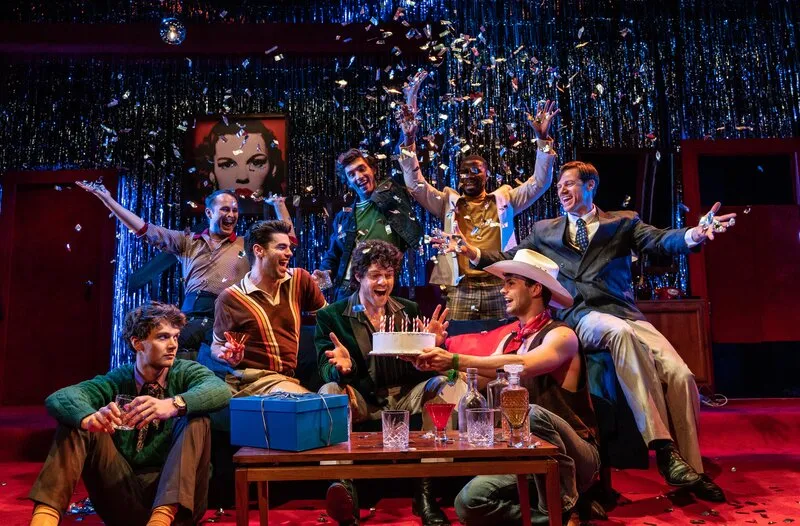
The cast of The Boys In The Band
Alister Smith, noted director of shows such as Les Misérables and Heathers, has the task of helming a show already critically acclaimed from its Broadway revival. A tough act to follow, or maybe not.
“The recent Broadway revivals showcased the enduring relevance of The Boys in the Band, says Smith.
“For this Australian production, I immersed myself in the 1960s cultural and artistic landscape, especially the queer rebellion and protest movements that were taking shape at the time. Pop art, emerging as the first major modern queer artistic movement, became an essential influence in exploring the play’s visual and emotional depth.
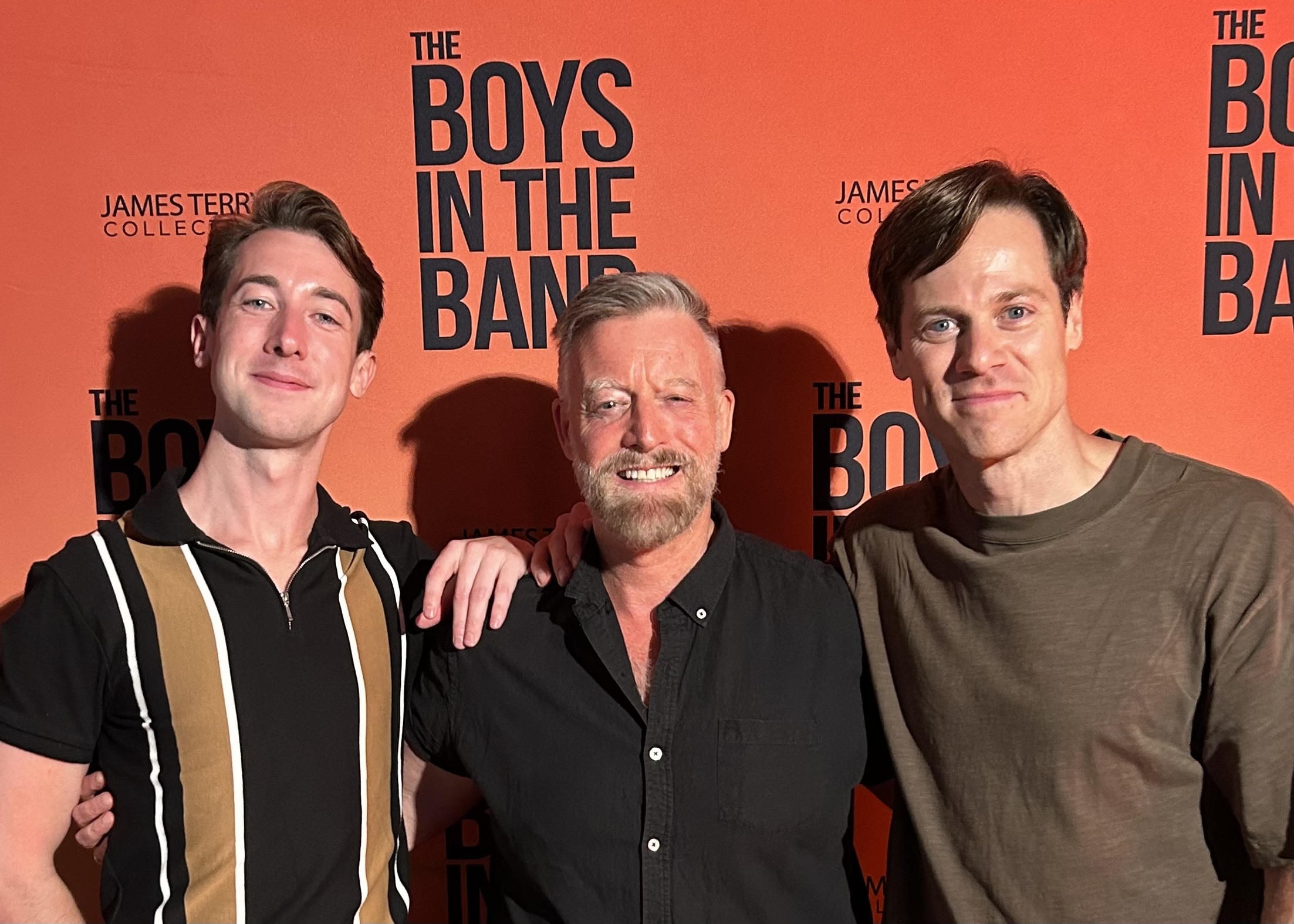
Matt Myers with The Boys In The Band producer James Terry and Stephen Mahy (Hank)
“These elements provided a rich backdrop against which the characters’ struggles and triumphs could be heightened. The 1960s were a time of both quiet resilience and bold defiance within the queer community, and this revival taps into that tension and energy.”
As with the recent revivals of The Normal Heart and Angels in America, The Boys in the Band will no doubt gain further interest, bridging the gap between queer generations, whilst showcasing upcoming new talent.
“I expect Australian audiences to embrace this show with a mix of nostalgia and newfound appreciation,” says Smith.
“For those familiar with the play, it will be a poignant reminder of its groundbreaking impact, while for newer audiences, it’s an opportunity to experience a seminal piece of queer theatre history. The themes of love, identity, and resilience are universal, and I believe audiences will find themselves deeply moved by the raw honesty and emotional depth.
The Boys in the Band: Chapel of Chapel, Melbourne 27 Feb – 9 Mar
For more: theboysintheband.com.au
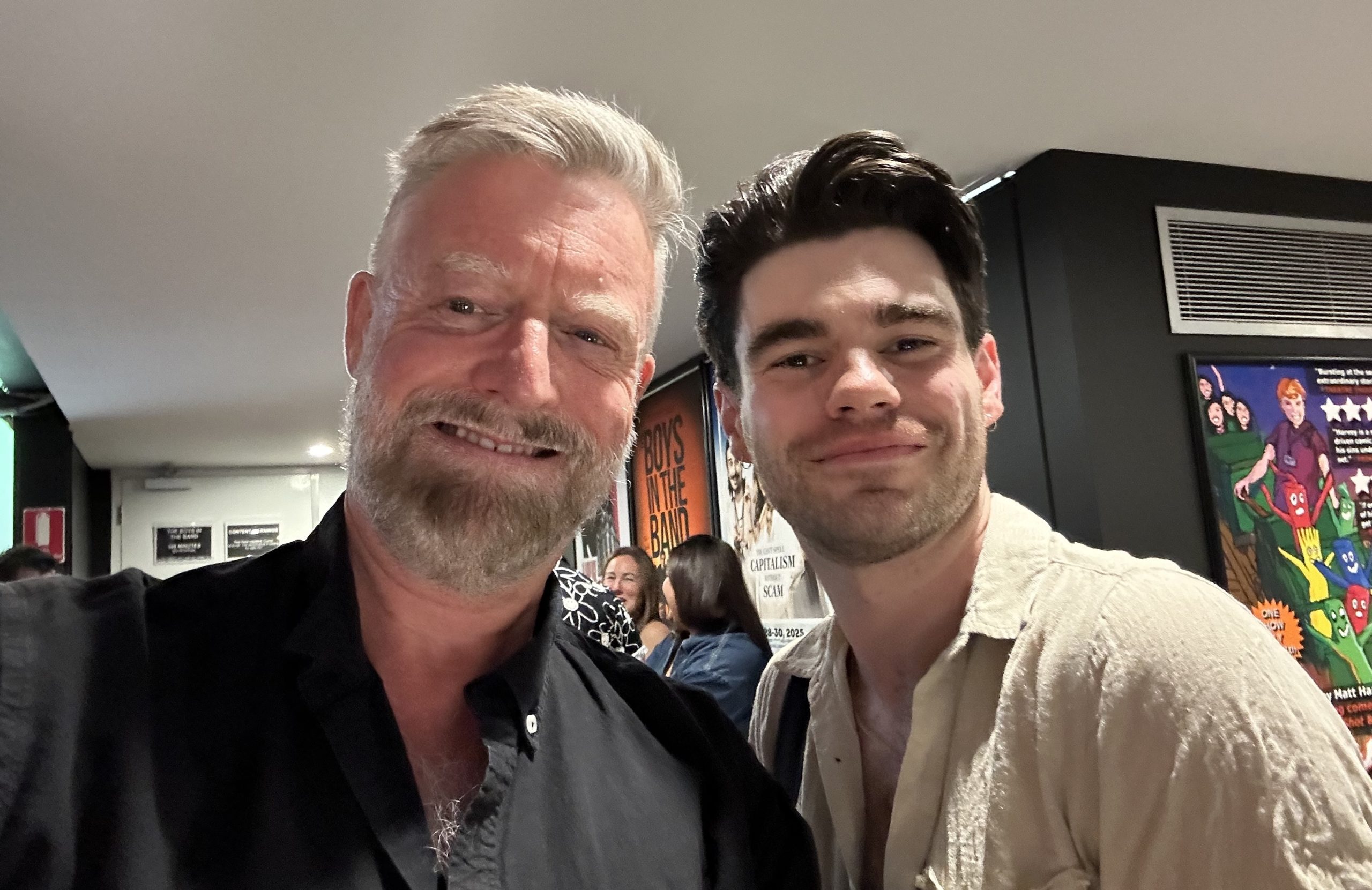
Matt Myers with Ryan Henry (Emory)

